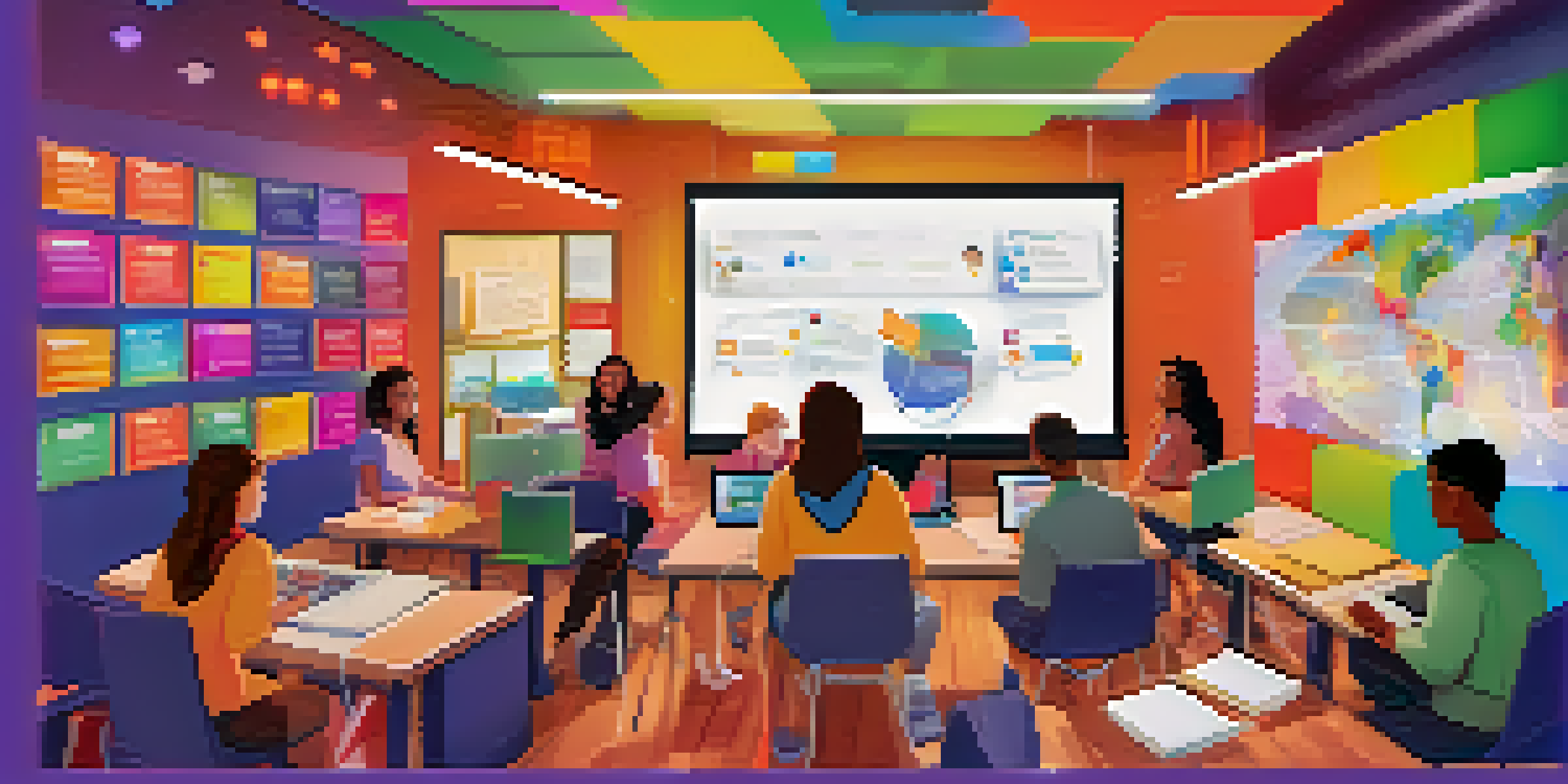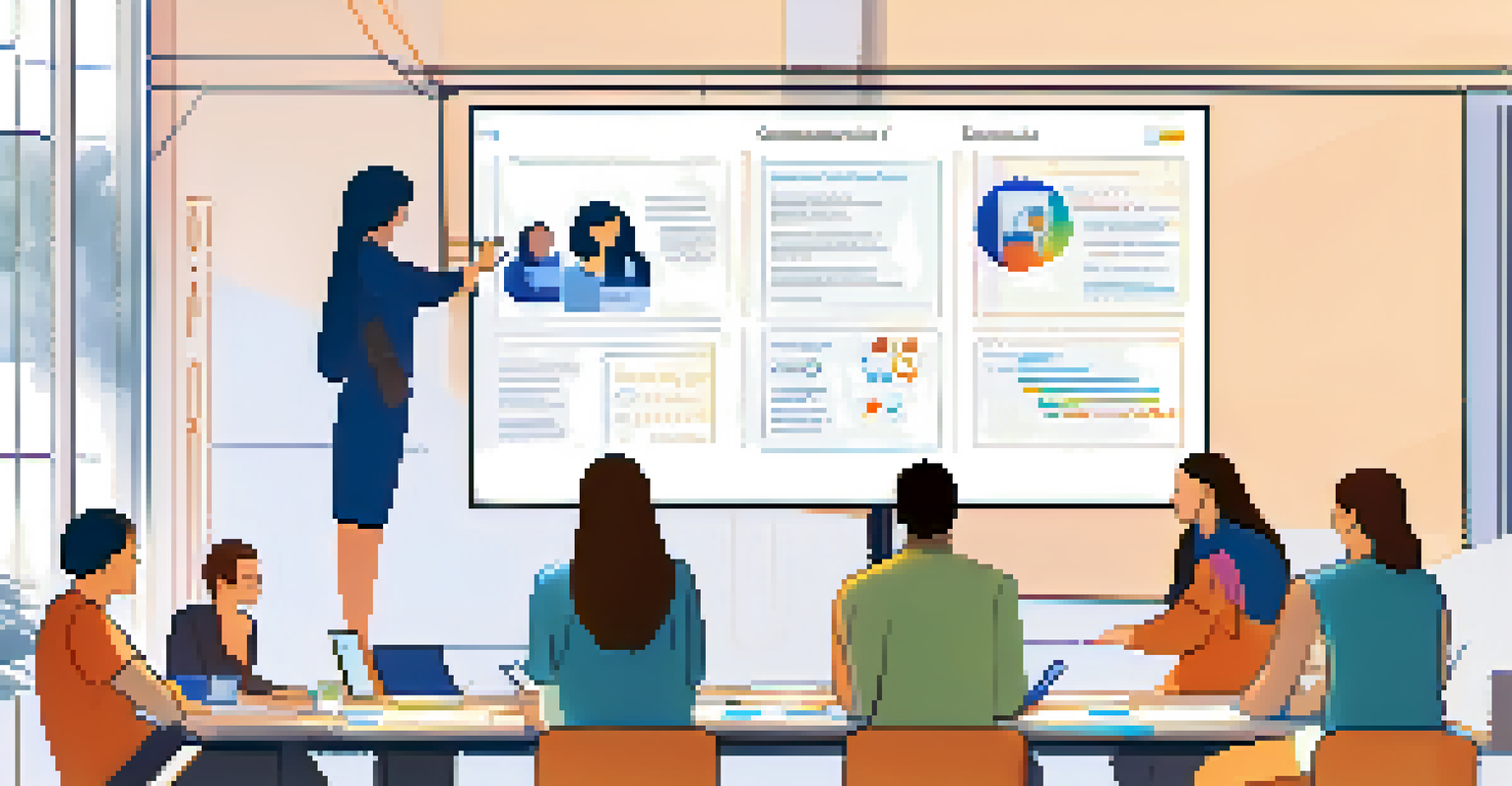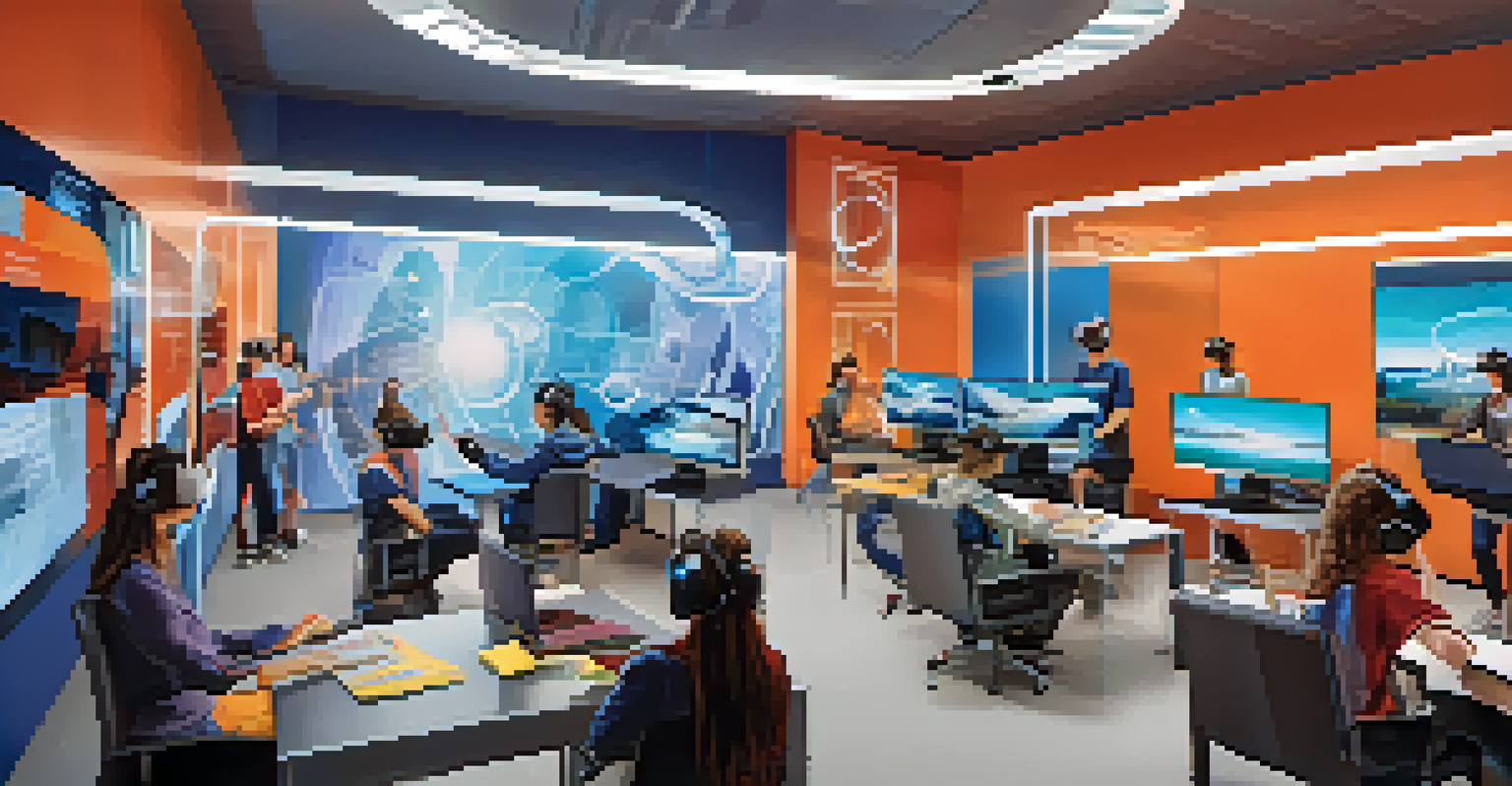Assessing Soft Skills in Online Learning Environments

Understanding Soft Skills in Online Learning Contexts
Soft skills, often referred to as interpersonal skills, include traits like communication, teamwork, and problem-solving. In online learning environments, these skills are crucial as they enhance collaboration and engagement among learners. Unlike technical skills, which are typically measurable through tests, soft skills require a more nuanced approach to assessment.
Soft skills are the skills of the future. They are the key to building relationships, gaining visibility, and creating more opportunities for yourself.
The rise of remote education has brought soft skills to the forefront, as students interact with peers and instructors in digital spaces. Recognizing the importance of these skills can help educators create a more holistic learning experience. Ultimately, soft skills contribute to a student's overall success and preparedness for the workforce.
Assessing soft skills is not just about individual performance; it’s also about fostering a collaborative online culture. By understanding these skills, educators can design assessments that reflect real-world scenarios, where teamwork and communication are key.
Challenges in Assessing Soft Skills Remotely
While assessing soft skills is essential, it comes with its challenges, especially in an online setting. One major hurdle is the lack of face-to-face interaction, which can hinder the ability to observe and evaluate students' interpersonal skills. This absence can make it difficult to gauge how well students communicate or collaborate during group activities.

Another challenge lies in creating objective assessment criteria for soft skills. Since these skills are often subjective in nature, establishing clear rubrics that accurately capture a student's abilities can be tricky. For instance, how do you quantify effective communication or empathy in a virtual environment?
Soft Skills Are Essential Online
In online learning, soft skills like communication and teamwork are vital for enhancing collaboration and student engagement.
Additionally, online distractions can impact student engagement and performance. With various digital interruptions, it becomes harder to assess how well learners are applying their soft skills during online discussions or collaborative projects.
Effective Assessment Strategies for Soft Skills
To effectively assess soft skills in online learning, educators can implement various strategies that encourage interaction and reflection. One effective method is through peer evaluations, where students assess each other's contributions to group projects. This not only fosters accountability but also allows students to reflect on their own skills in a meaningful way.
The ability to communicate effectively and work collaboratively is essential in today's digital world.
Another strategy is the use of scenario-based assessments, where learners are presented with realistic situations requiring collaboration or problem-solving. By simulating real-world challenges, educators can observe how students navigate these scenarios and apply their soft skills in practical contexts. This method helps bridge the gap between theory and practice.
Finally, incorporating self-assessment can empower students to take ownership of their learning. By encouraging learners to reflect on their soft skills development, educators can foster a growth mindset and motivate students to actively improve their interpersonal abilities.
Leveraging Technology for Skill Assessment
Technology plays a pivotal role in assessing soft skills within online learning environments. Tools such as video conferencing platforms enable educators to observe group dynamics in real-time, allowing for better assessment of communication and teamwork. Additionally, these platforms often have features that facilitate breakout rooms, where smaller discussions can take place, providing deeper insights into student interactions.
Furthermore, online collaboration tools like Google Docs or project management software allow for tracking contributions in group assignments. Educators can assess how effectively students collaborate, share ideas, and provide feedback to one another. This digital footprint can serve as evidence of soft skill application.
Challenges in Remote Assessment
Assessing soft skills remotely poses challenges due to limited face-to-face interaction and the subjective nature of these skills.
Lastly, gamification can also be utilized to assess soft skills. By incorporating game-like elements into assessments, educators can create engaging scenarios that require teamwork, critical thinking, and effective communication, all while making the learning process enjoyable.
Creating a Supportive Learning Environment
A supportive online learning environment is essential for fostering the development of soft skills. Educators can cultivate this environment by establishing clear expectations and norms for interaction. By encouraging open communication and respect, students feel more comfortable expressing themselves and engaging with their peers.
Offering resources and guidance on soft skills development can also enhance student learning. Providing workshops or materials on effective communication, conflict resolution, and teamwork can equip students with the tools they need to succeed. This proactive approach can help bridge gaps in soft skills that students may face.
Lastly, fostering a sense of community within the online classroom helps students feel connected. Encouraging group projects and discussions can create opportunities for relationship-building, which is vital for soft skill enhancement. When students feel valued and supported, they are more likely to engage actively and improve their interpersonal abilities.
The Role of Feedback in Soft Skills Assessment
Feedback is a crucial component in assessing and developing soft skills in online learning environments. Providing constructive feedback helps students understand their strengths and areas for improvement. This ongoing dialogue encourages learners to reflect on their interpersonal skills and make necessary adjustments.
Utilizing both formative and summative feedback can enhance the assessment process. Formative feedback, provided during the learning process, allows students to make real-time improvements, while summative feedback can highlight overall skill development at the end of a course. Both forms of feedback contribute to a comprehensive understanding of a student's soft skills.
Innovative Assessment Strategies
Effective assessment of soft skills can be achieved through peer evaluations, scenario-based tasks, and incorporating technology.
Moreover, fostering a culture of peer feedback can be beneficial. Encouraging students to give and receive feedback from each other not only enhances their soft skills but also promotes a collaborative learning atmosphere. This practice helps students develop empathy and communication skills, which are essential in both academic and professional settings.
Future Trends in Soft Skills Assessment
As online learning continues to evolve, so will the methods for assessing soft skills. One trend on the horizon is the increased use of artificial intelligence (AI) in evaluating interpersonal skills. AI-driven tools can analyze student interactions and provide insights into communication styles, teamwork effectiveness, and emotional intelligence.
Another trend is the integration of virtual reality (VR) and augmented reality (AR) into soft skills assessment. These technologies can simulate real-life scenarios where students can practice and demonstrate their soft skills in safe environments. Such innovative approaches could revolutionize how soft skills are taught and assessed.

Finally, the emphasis on lifelong learning is likely to shape soft skills assessment in the future. As the job market evolves, continuous skill development will become increasingly important. Educators will need to adapt their assessment strategies to ensure that students are not just learning soft skills but are also equipped to apply them throughout their careers.